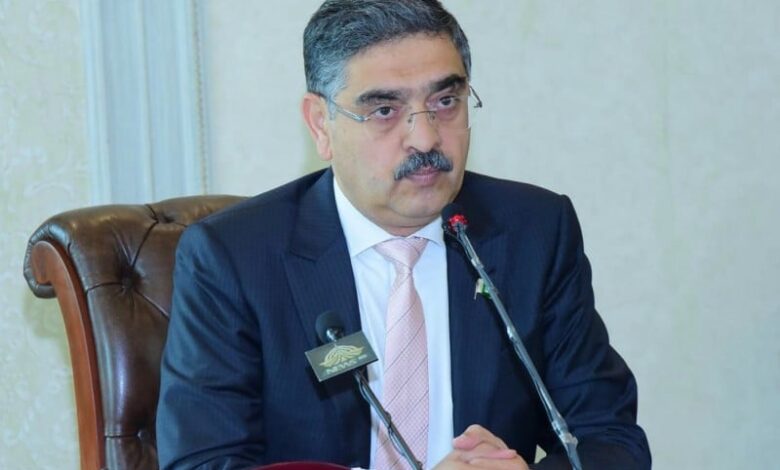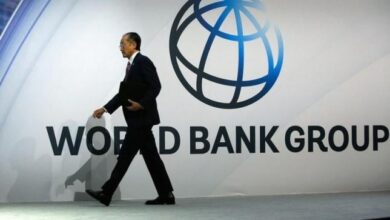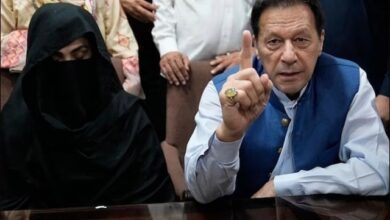Pakistan eyes $25b Saudi investment

ISLAMABAD:Saudi Arabia will invest up to $25 billion in Pakistan over the next two to five years in various sectors, Caretaker Prime Minister Anwaarul Haq Kakar said on Monday, announcing that his interim government would also revive a stalled privatisation process.
Speaking to journalists at his official residence, Kakar said that the Saudi investment would come in the mining, agriculture and information technology sectors, and was a part of the push to increase foreign direct investment (FDI) in the country.
Pakistan is embarking on a tricky path to economic recovery under the caretaker government after a $3 billion loan programme, approved by the International Monetary Fund (IMF) in July, averted a sovereign debt default.
At present, Islamabad is dealing with a balance of payments crisis and requires billions of dollars to finance its trade deficit and repay its debts. If confirmed by Riyadh, the investments worth $25 billion would be the biggest ever by the Saudi Arabia in Pakistan.
Prime Minister Kakar did not specify projects Riyadh was looking at for investment, but last month Barrick Gold Corp said it was open to bringing in Saudi Arabia’s wealth fund as one of its partners in Reko Diq gold and copper mine – one of the world’s largest underdeveloped copper-gold areas.
Pakistan’s untapped mineral deposits are conservatively valued at about $6 trillion, Kakar said, adding that the Reko Diq project was about to start soon. He called for all the stakeholders to formulate a model to explore the mineral-rich areas to make the world see Pakistan through a different prism.
Calling the Special Investment Facilitation Council (SIFC) a strategy for economic revival, Prime Minister Kakar said that the initiative focused on mines and minerals, besides agriculture, defence production and information technology.
He said that without redesigning the government structure, the interim set-up was focused on rearranging fiscal and monetary policies to build an edifice for economic revival. “The government is pursuing a policy of doing the doable, and providing a strategic direction to the economic planning.”
Out-of-box solutions
He also spelled out the economic reform agenda of his government, saying that the imminent steps included the push to complete the privatisation of two or more power distribution companies in the next six months. He also spoke about reforms in taxation and power sectors.
Kakar assured that the government was exploring “realistic options” to come up with out-of-box solutions to provide relief to electricity consumers. Mentioning the issues of circular debt, power theft, and taxes, he said the government would introduce short-term solutions to the issue.
The prime minister stressed that the government would take informed decisions to satisfy the masses on the issue of electricity bills and without deviating from the country’s commitments with the international financial institutions.
General elections
The prime minister assured that the government was mandated to facilitate the elections as early as possible, while observing its constitutional obligations. However, he stressed that the Constitution called for carrying out the delimitation, following the population census.
To a question, he said all the registered political parties would be provided a level-playing field to contest the general elections without any discrimination. However, he added, in certain instances, political behaviour turned into vandalism and the law was already in vogue to deal with such conduct.
About the May 9 riots, the prime minister stated the attacks on the military installations were an attempt to create societal disorder. “That existential threat needed a lawful response,” he said, adding that he supported the laws to curb such behaviour.
Responding to another question about the terrorist attacks by the outlawed Tehreek-e-Taliban, Pakistan (TTP), the prime minister drew attention to the leftover military equipment by the US and allied forces back in Afghanistan, which required a coordinated approach to deal with.
He said the foreign forces left Afghanistan after losing interest but “we are here to defend our home, children, mosques and places of worship”. He also said that the government was coming up with a policy to address the challenge of illegal immigrants.
Responding to a query, the prime minister said the government had an “excellent working environment” with the army and both were working together, also for economic revival. Kakar said that the people of Balochistan welcomed the China-Pakistan Economic Corridor (CPEC), which had entered the second phase. He assured full protection to the Chinese workers, taking part in the CPEC projects.
Swift action
Separately, chairing a meeting, Kakar received a briefing on all sections of the energy sector. He ordered immediate action against those involved in power theft and electricity defaulters and asked the relevant departments to submit reports in this regard on a daily basis.
He also ordered for effective measures to reduce line losses of the power distribution companies. “A comprehensive plan should be prepared and presented to implement the transformer metering project,” the prime minister told the participants.
The prime minister stressed that in the future, the renewable and hydel sources of energy should be given a priority to produce cheap and green energy. He also called for planning small hydel power projects under the guidance of relevant experts.
“Such projects will not only generate low-cost electricity but also help reduce the harmful effects of climate change,” he said, adding that the local coal should be preferred instead of expensive imported coal, in the coal-based power generation projects. The prime minister also directed for starting work on the construction of 2,400MW solar power projects, while ensuring transparency in the entire process.
The meeting was also informed that the power division had already completed its work for the establishment of the electricity energy market in the country, which would effectively increase the performance and capacity of the power sector and help 27 million domestic consumers.





